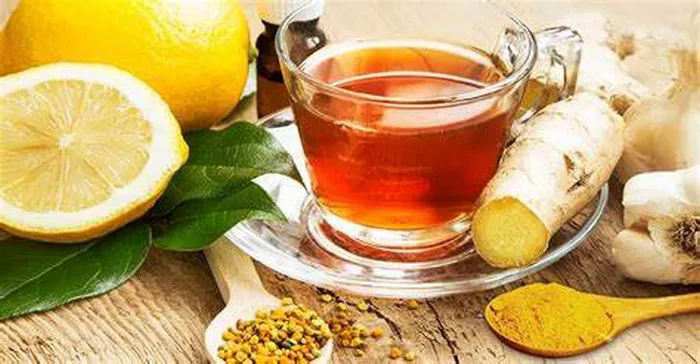Heart palpitations can be a concerning and uncomfortable experience for many individuals. Characterized by a sensation of fluttering, pounding, or irregular heartbeat, palpitations may occur due to various factors such as stress, anxiety, caffeine intake, or underlying heart conditions. While medical intervention may be necessary in severe cases, there is growing interest in natural remedies like tea for managing occasional heart palpitations and supporting overall cardiac health. In this article, we delve into the world of tea and explore its potential benefits in alleviating heart palpitations.
Understanding Heart Palpitations
Before delving into tea’s efficacy in managing heart palpitations, it’s crucial to understand what these palpitations entail. Heart palpitations refer to the perception of abnormal heartbeats, which may include sensations like fluttering, pounding, or skipped beats. These sensations can be alarming and may occur intermittently or persistently.
While occasional heart palpitations are common and often benign, they can also signal underlying issues such as:
1. Stress and Anxiety: Emotional stress and anxiety can trigger palpitations by activating the body’s “fight or flight” response, leading to increased heart rate and palpitations.
2. Caffeine and Stimulants: Excessive consumption of caffeine, energy drinks, or stimulants can stimulate the heart and contribute to palpitations.
3. Electrolyte Imbalances: Imbalances in electrolytes such as potassium, magnesium, and calcium can affect the heart’s electrical activity, potentially leading to palpitations.
4. Heart Conditions: Certain heart conditions like arrhythmias, atrial fibrillation, or structural abnormalities may cause palpitations and require medical evaluation and treatment.
5. Other Factors: Factors such as dehydration, hormonal changes, medication side effects, or thyroid disorders can also influence heart rhythm and contribute to palpitations.
Managing Heart Palpitations with Tea
Tea, known for its diverse flavors and health-promoting properties, has gained attention as a potential natural remedy for managing heart palpitations. Several types of tea, including herbal teas and traditional varieties like green tea and black tea, are believed to offer benefits for cardiac health and overall well-being. Let’s explore the potential of different teas in addressing heart palpitations:
Herbal Teas for Calming Effects
1. Chamomile Tea: Chamomile is renowned for its calming and soothing properties, making chamomile tea a popular choice for relaxation and stress reduction. By promoting relaxation, chamomile tea may indirectly help reduce palpitations triggered by stress and anxiety.
2. Lemon Balm Tea: Lemon balm is another herb known for its calming effects. Lemon balm tea may help reduce anxiety and promote relaxation, potentially benefiting individuals experiencing palpitations related to stress or emotional triggers.
3. Passionflower Tea: Passionflower has been used traditionally to alleviate anxiety and improve sleep quality. Drinking passionflower tea may have a calming effect on the nervous system, which could be beneficial for managing palpitations associated with anxiety or stress.
Green Tea for Antioxidant Support
Green tea is celebrated for its rich antioxidant content, particularly catechins such as epigallocatechin gallate (EGCG). Antioxidants help combat oxidative stress and inflammation, which are implicated in various cardiovascular conditions. While green tea contains caffeine, its moderate consumption is generally well-tolerated and may offer cardiovascular benefits, including potential support for heart health and rhythm.
Hibiscus Tea for Blood Pressure Management
Hibiscus tea has gained attention for its potential to lower blood pressure. High blood pressure (hypertension) is a risk factor for heart palpitations and cardiovascular disease. Consuming hibiscus tea regularly may contribute to better blood pressure control, indirectly benefiting heart rhythm and reducing the likelihood of palpitations.
Peppermint Tea for Digestive Comfort
While not directly targeting heart palpitations, peppermint tea may indirectly benefit individuals experiencing palpitations due to digestive issues. Peppermint tea can help soothe the digestive system, reduce bloating and discomfort, and promote overall gastrointestinal health. Since digestive disturbances can sometimes trigger palpitations, maintaining digestive comfort may be beneficial for some individuals.
Valerian Root Tea for Relaxation
Valerian root is renowned for its potential to promote relaxation and improve sleep quality. Valerian root tea may help reduce anxiety and stress, contributing to a calmer nervous system and potentially reducing palpitations associated with emotional triggers.
Cautions and Considerations
While tea can offer potential benefits for heart health and palpitation management, it’s essential to approach its use with caution and consideration:
1. Caffeine Sensitivity: Individuals sensitive to caffeine should limit their intake of caffeinated teas like green tea or black tea, as excessive caffeine consumption can exacerbate palpitations in some people.
2. Quality and Preparation: Choosing high-quality teas and brewing them correctly ensures optimal flavor and potential health benefits. Avoiding excessive sugar or additives maintains the tea’s natural properties.
3. Individual Variability: Responses to teas and herbal remedies can vary widely among individuals. It’s advisable to start with small quantities and monitor how your body responds before incorporating tea as a regular part of your routine, especially if you have underlying health conditions or are taking medications.
4. Consultation with Healthcare Providers: If you experience frequent or persistent heart palpitations, it’s crucial to seek medical evaluation to identify underlying causes and receive appropriate treatment. While teas may complement overall cardiac health, they are not substitutes for medical care when needed.
Conclusion
In conclusion, tea offers a diverse range of options for individuals seeking natural remedies to manage occasional heart palpitations and support cardiac health. From calming herbal teas like chamomile and lemon balm to antioxidant-rich green tea and blood pressure-regulating hibiscus tea, there are various choices to explore based on individual preferences and needs. While incorporating tea into your routine, it’s essential to prioritize overall lifestyle factors such as stress management, regular exercise, and a balanced diet for comprehensive heart health. As with any dietary or lifestyle change, consulting with healthcare providers can provide personalized guidance and ensure safe and effective integration of teas into your wellness plan. By combining natural approaches with medical guidance as needed, individuals can take proactive steps towards promoting heart health and well-being.

